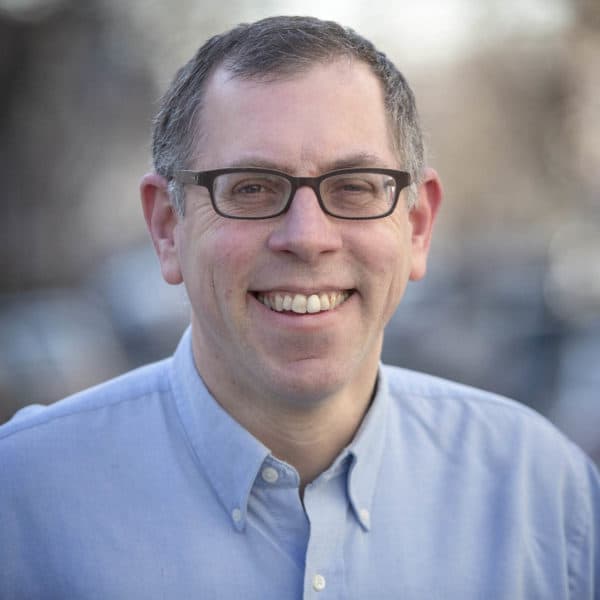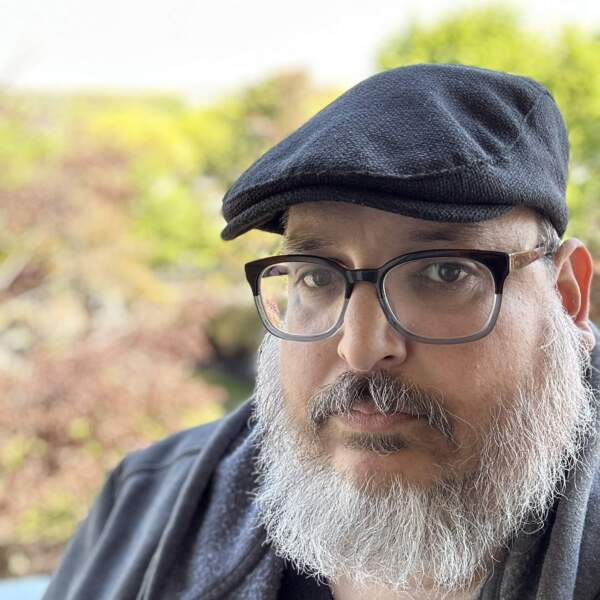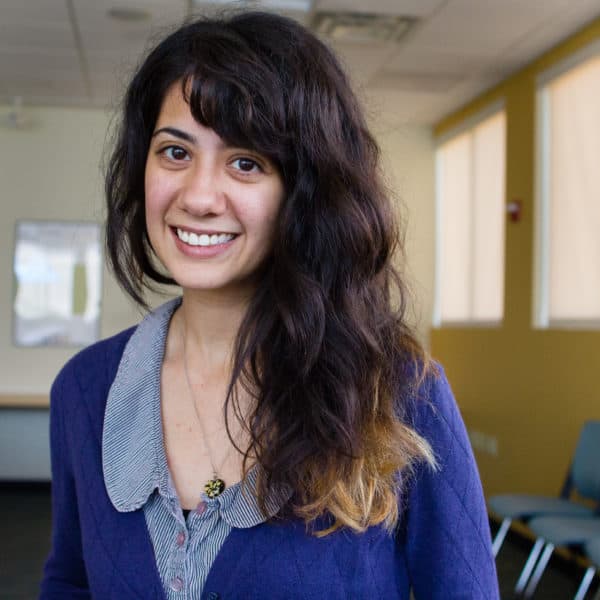Advertisement
2021 Boston Mayoral Race
Wu And Essaibi George Head To General Election, Ensuring Boston Will Elect Its First Woman Mayor
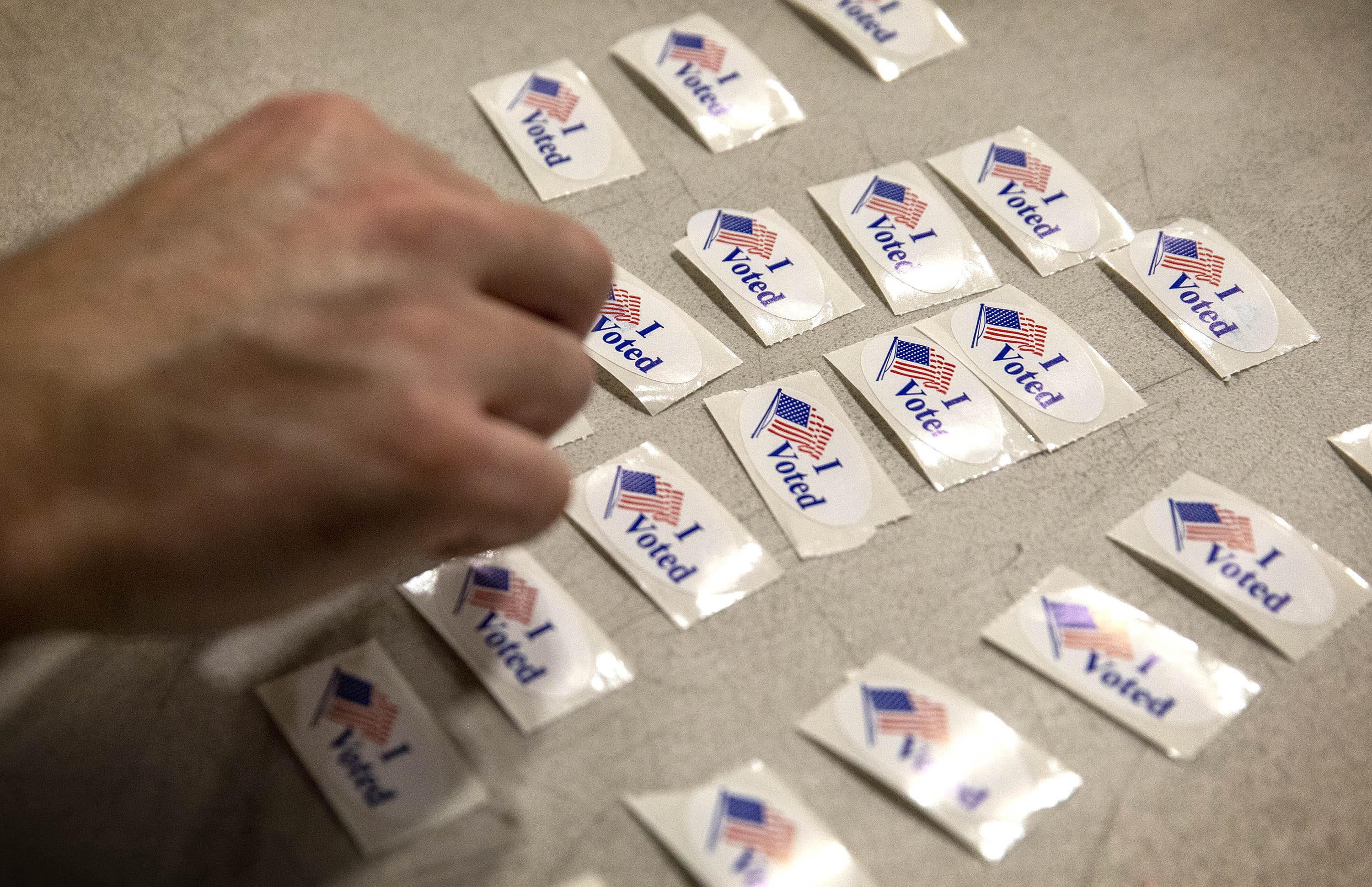
City Councilor Michelle Wu will face fellow city councilor and mayoral candidate Annissa Essaibi George in Boston's November election, ensuring that the city's next elected mayor will, for the first time ever, be a woman and a person of color.
After a long Tuesday evening with practically no results from City Hall, The Associated Press declared victory for Wu around 3 a.m. Wednesday morning. At that hour, Wu held a sizable lead against her three biggest contenders, with fewer than half of precincts reporting.
It wasn't until hours later, at around 10 a.m., that AP called the final race slot for Essaibi George, with 100% of precincts reporting.
But that didn't stop the candidates from making their own predictions about how the race would end up.
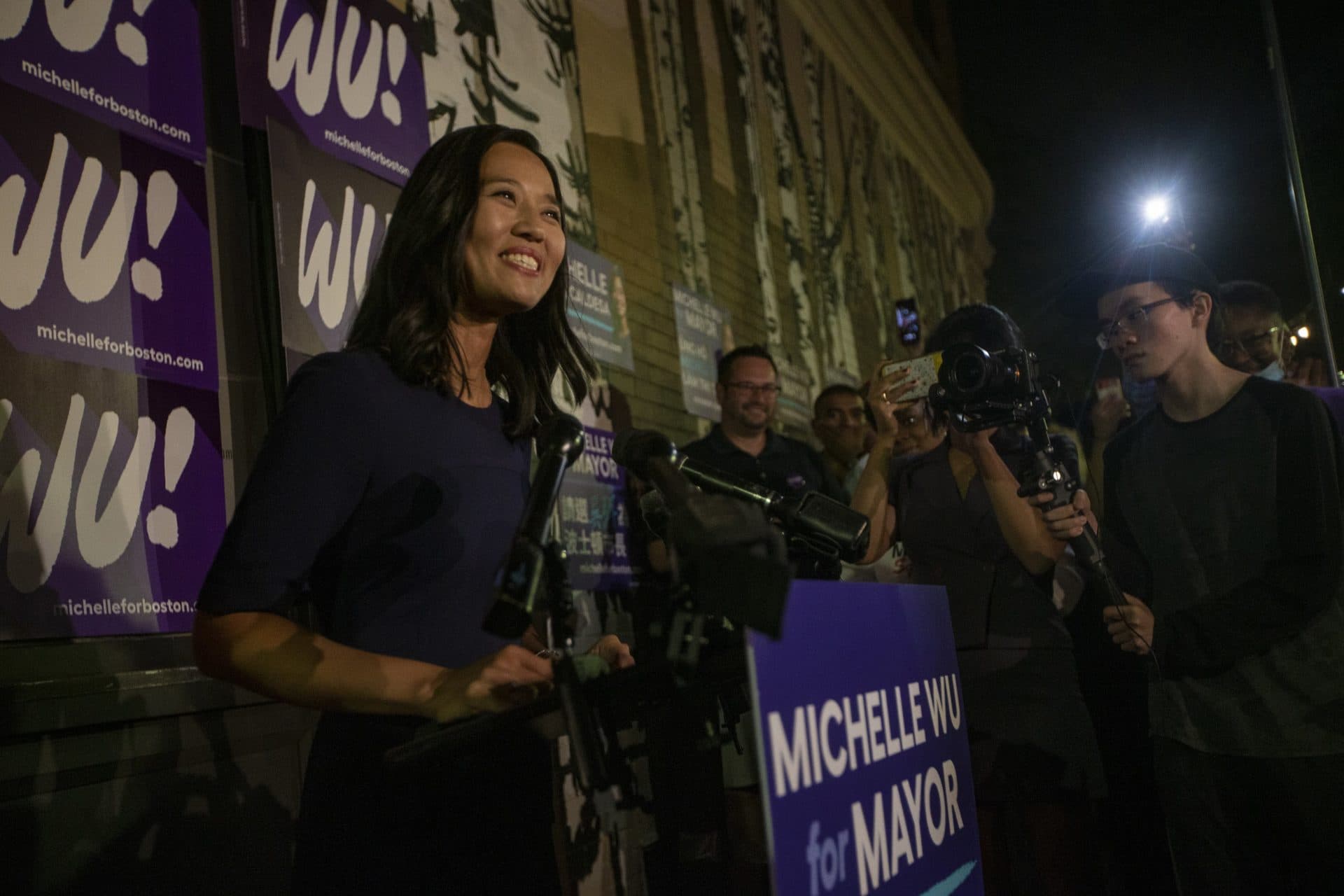
Before midnight, Wu declared victory with very little of the vote tally released. Essaibi George exited her Dorchester watch party saying her campaign felt confident the results would be in her favor, and their two top rivals, acting Mayor Kim Janey and City Councilor Andrea Campbell, both conceded by around midnight.
By that time, less than 1% of precincts were reported. Election workers, who needed to continue counting ballots overnight as required by state law, said they were ensuring those who voted by mail did not also cast ballots in person.
As Wu declared victory Tuesday night, she thanked her rivals and supporters, saying the results, when they come in, would make clear the decision Boston will face in November.
"This is a choice about whether City Hall tackles our biggest challenges with bold solutions, or we nibble around the edges of the status quo," she said, speaking to a crowd at her election night party in Roslindale.
Speaking to a crowd in Dorchester Tuesday night, Essaibi George expressed confidence that she will be Boston's next mayor, but stopped short of declaring victory.
"We need to make sure every vote is counted. It doesn't mean we won't celebrate, but we need to make sure every voter is counted," she said.
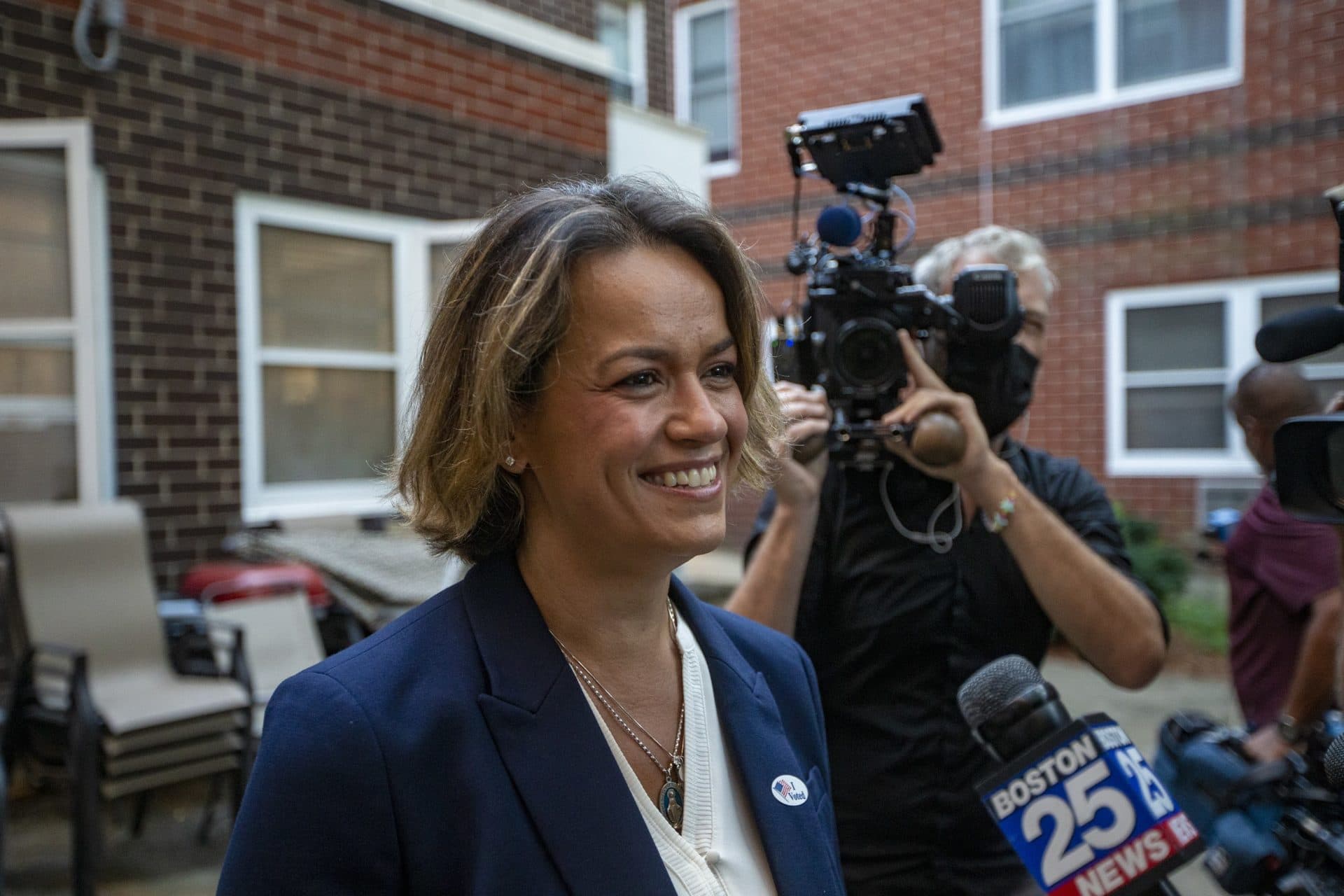
Campbell, meanwhile, told her supporters she had called Wu and Essaibi George to concede.
Janey did not appear at her own election night party, where a representative told the crowd of supporters to go home and get some rest before they examined the unofficial results Wednesday. Just after midnight, her campaign released a concession statement.
"While we are still waiting on some results, it appears that we have come up short in the election," Janey said in the statement. "I want to congratulate Michelle Wu and Annissa Essaibi George on their victories this evening. This was a spirited and historic race, and I wish them both luck in the final election."
Janey already made history by becoming the first woman and first person of color to lead the city as acting mayor.
Recent polls had shown Wu was leading the field with a tight race for the second spot between Janey, Campbell and Essaibi George. John Barros, the city's former economic development director, came in at a distant fifth in the polls, behind the four women in the race. By Wednesday morning, it appeared Barros had not overcome those projections; he had secured about 3% of the vote total, with 100% of precincts reporting.
In all, 108,181 ballots were cast in Boston, which is slightly less than a quarter of all registered voters in the city. In 2013, the last mayoral election without an incumbent, about 113,000 people pulled the lever for a candidate.
November's election will be the first time that Boston does not elect a white man to be mayor.
There are stark differences between Essaibi George and Wu, who has been described as a darling of progressives and was endorsed by Massachusetts Sen. Elizabeth Warren. There are big differences in their platforms when it comes to policing, rent control and transportation, with Essaibi George voicing that on those issues, she is a lot more moderate. Of the candidates, she delivered the most vocal opposition to the idea of defunding the city's police department.
Boston voters also turned out to cast ballots in the city's competitive city council races, including narrowing a crowded field of candidates for four at-large seats.
Districts 4, 6, 7 and 9 also held preliminary races to determine the two final candidates in each race come the November election. (To see results in those races, go here.)
Earlier On Election Day And More About The Candidates
The mayoral election comes as the city faces the daunting challenges of containing the pandemic, rebuilding the economy and persuading people of the value of living in Boston when some employers have closed their offices and welcomed remote workers.
Like many big cities, Boston also faces challenges improving policing, education and transportation. But voters have consistently named the high price of housing as their top concern, aside from the pandemic.
Over the last several months, all five major candidates running for mayor campaigned in part by sharing their life stories.
Wu, 36, an attorney, was first elected to City Council in 2013 and was the first woman of color to serve as Boston City Council president from 2016 to 2018. The Chicago native moved to Boston to attend Harvard University, where she earned both her bachelor’s and law degree. She later worked for the city under former Mayor Thomas Menino.
"This is a moment where Boston can do more to make sure we are a city for everyone," she said. "I'm a mom with kids in the schools. I'm living the challenges and I also have a decade of experience in City Hall knowing how to get things done."
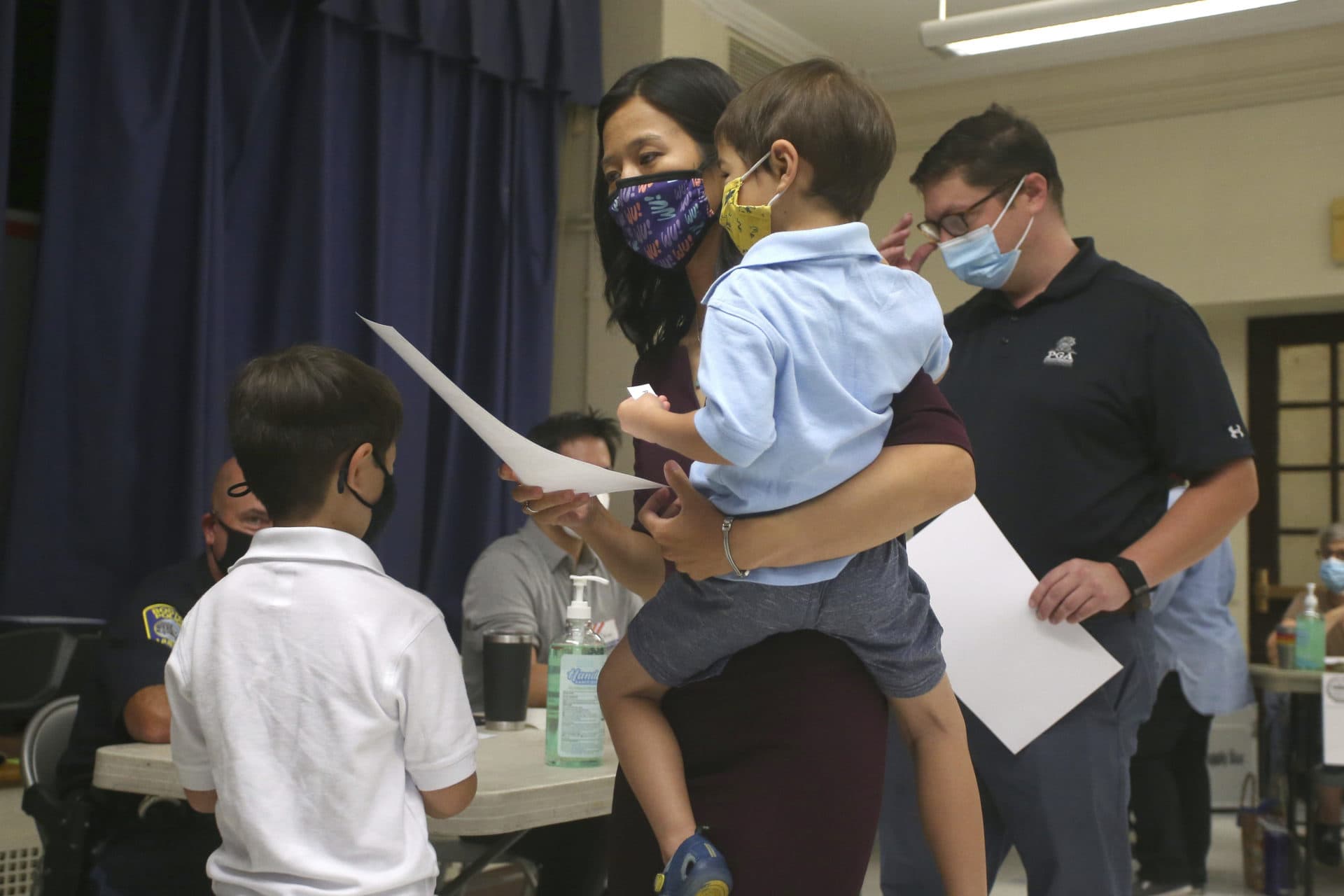
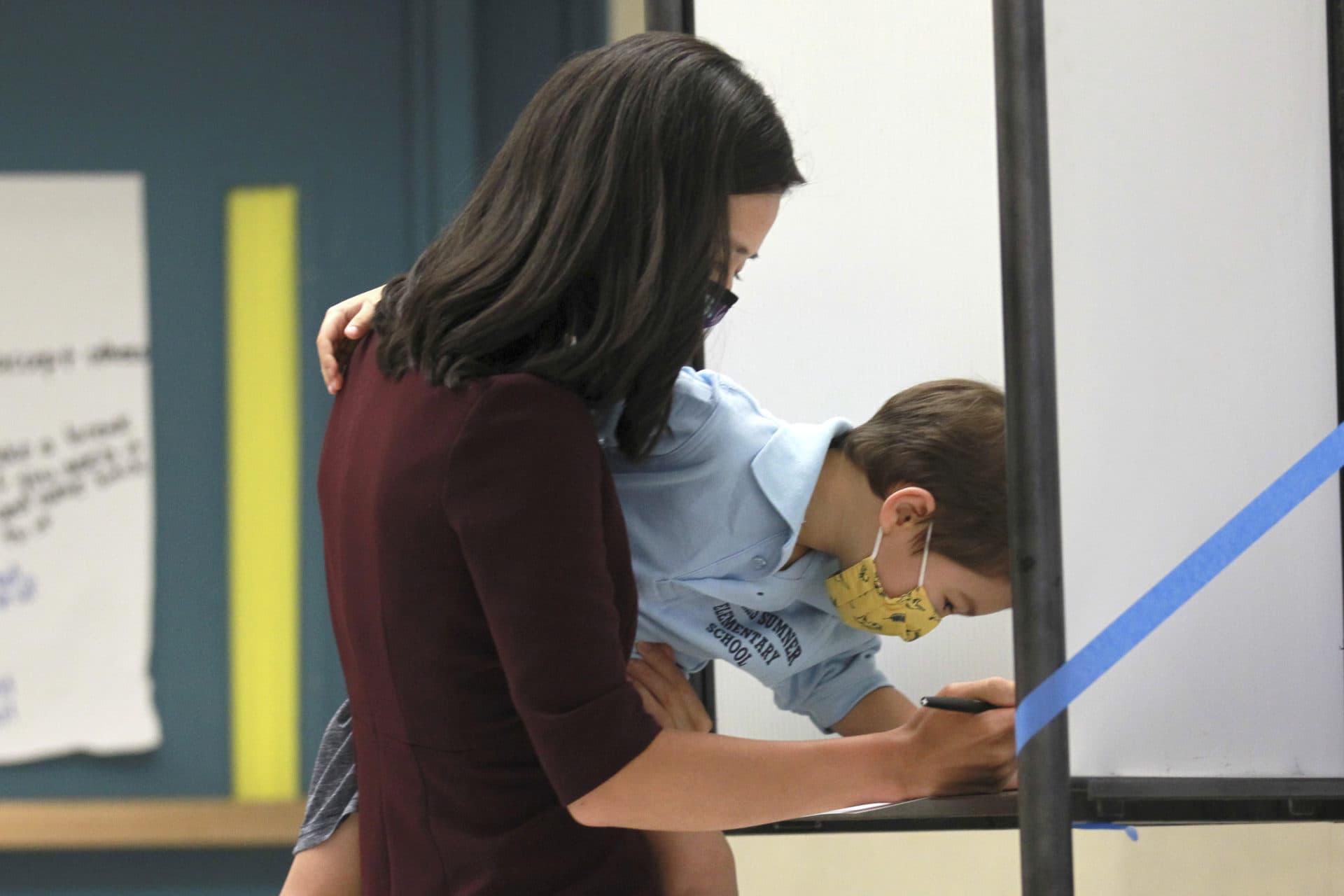
Boston City Councilor for District 9 Liz Breadon told WBUR on Tuesday morning that she was supporting fellow City Councilor Wu.
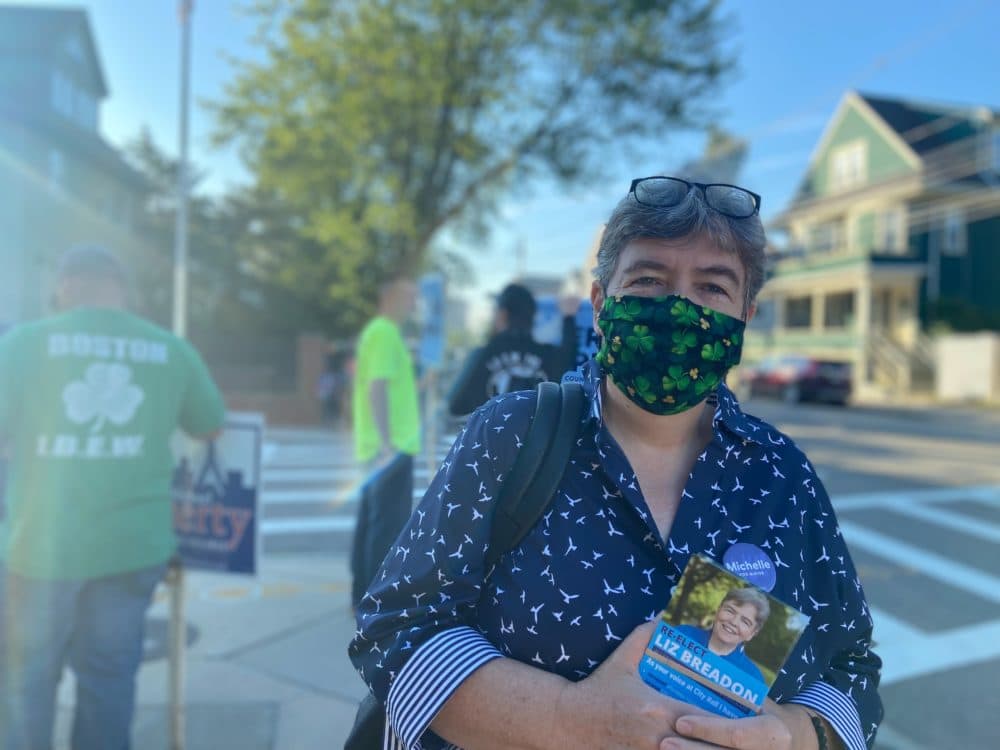
"Her policy platform is extensive, she goes deep into the issues, and she's constantly trying to find solutions that will make our city better," Breadon said. "And she thinks sort of outside the box in terms of thinking about solutions as well."
Essaibi George, 47, is a former teacher who has served as an at-large city councilor since 2015. She also owns the Stitch House in Dorchester and is the daughter of immigrants from Tunisia and Poland.
"It's an exciting day," she said Tuesday morning. "I am thrilled that I have the opportunity to be on this ballot. I'm looking forward to the opportunity to lead this city."
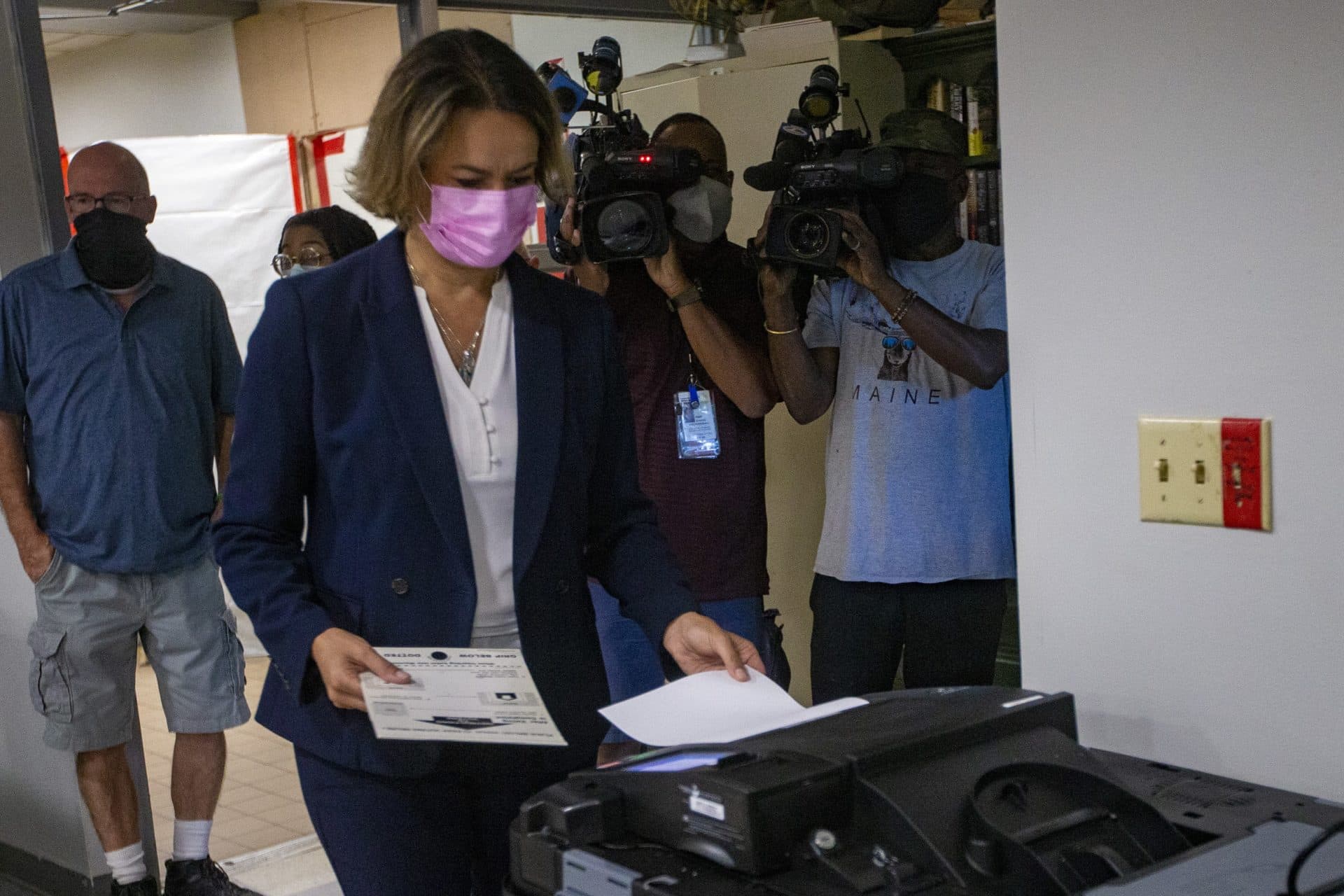
Janey, 56, who was elected Boston city council president last year, became acting mayor in March after Walsh resigned to become U.S. labor secretary. She was first elected to City Council in 2017. And before becoming a politician, she worked at nonprofits, including Parents United for Child Care and Massachusetts Advocates for Children.
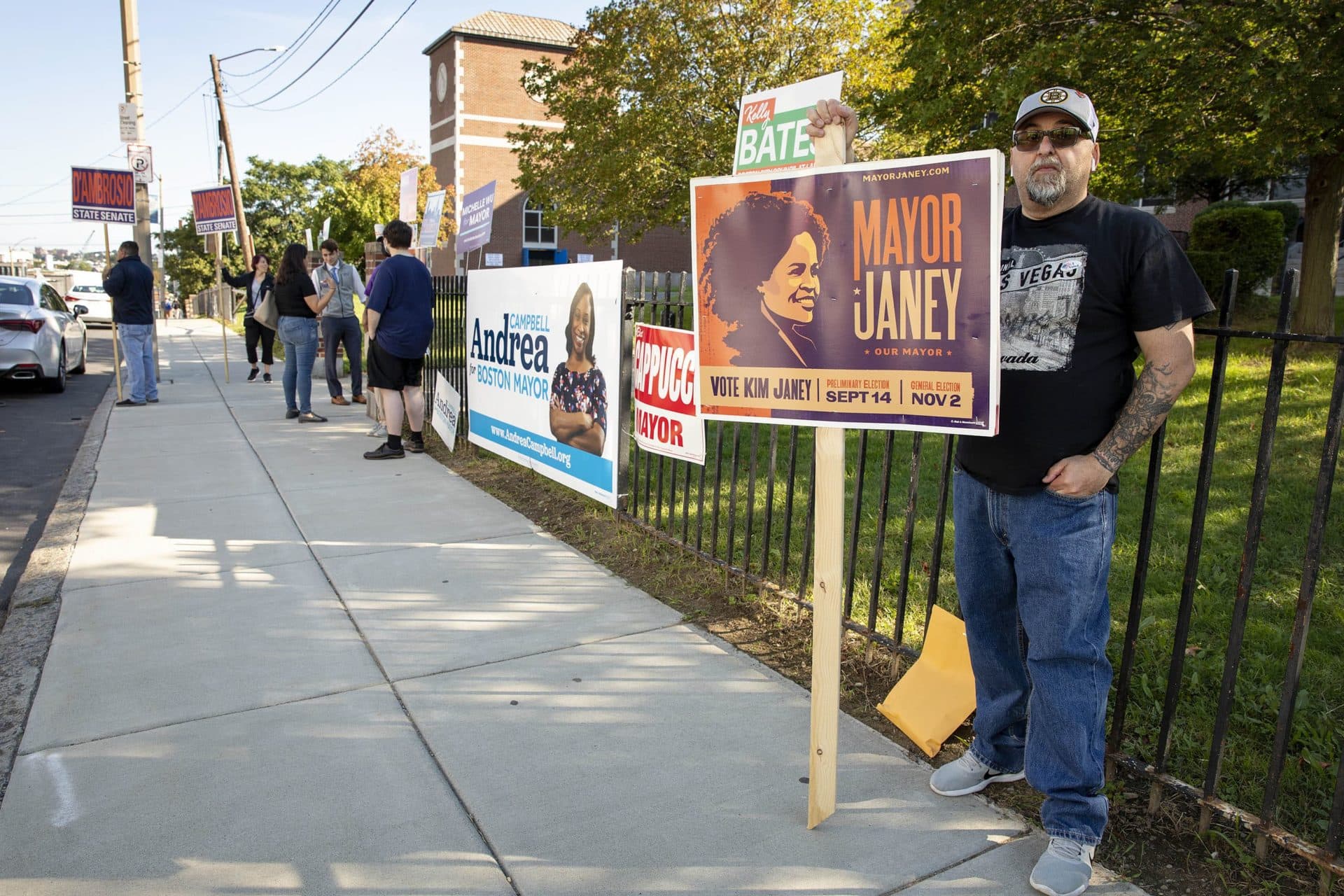
Barros, 48, served as the city's economic development director under former Mayor Marty Walsh for seven years. He is the son of immigrants from the Cape Verde islands and served as executive director of the Dudley Street Neighborhood Initiative. He first ran for mayor in 2013.
Campbell, 39, is an attorney who was first elected to the city council in 2015, representing a district that includes her Mattapan neighborhood. Among other positions, she served as a deputy legal counsel to former Gov. Deval Patrick.
"You know, this city gave me everything," she said to the media on Tuesday morning. "It took a poor girl from Roxbury and sent me to Princeton University and, by every metric, I've been successful and I want every family, whether they are native born or they got here this morning, to have the same access to opportunity."
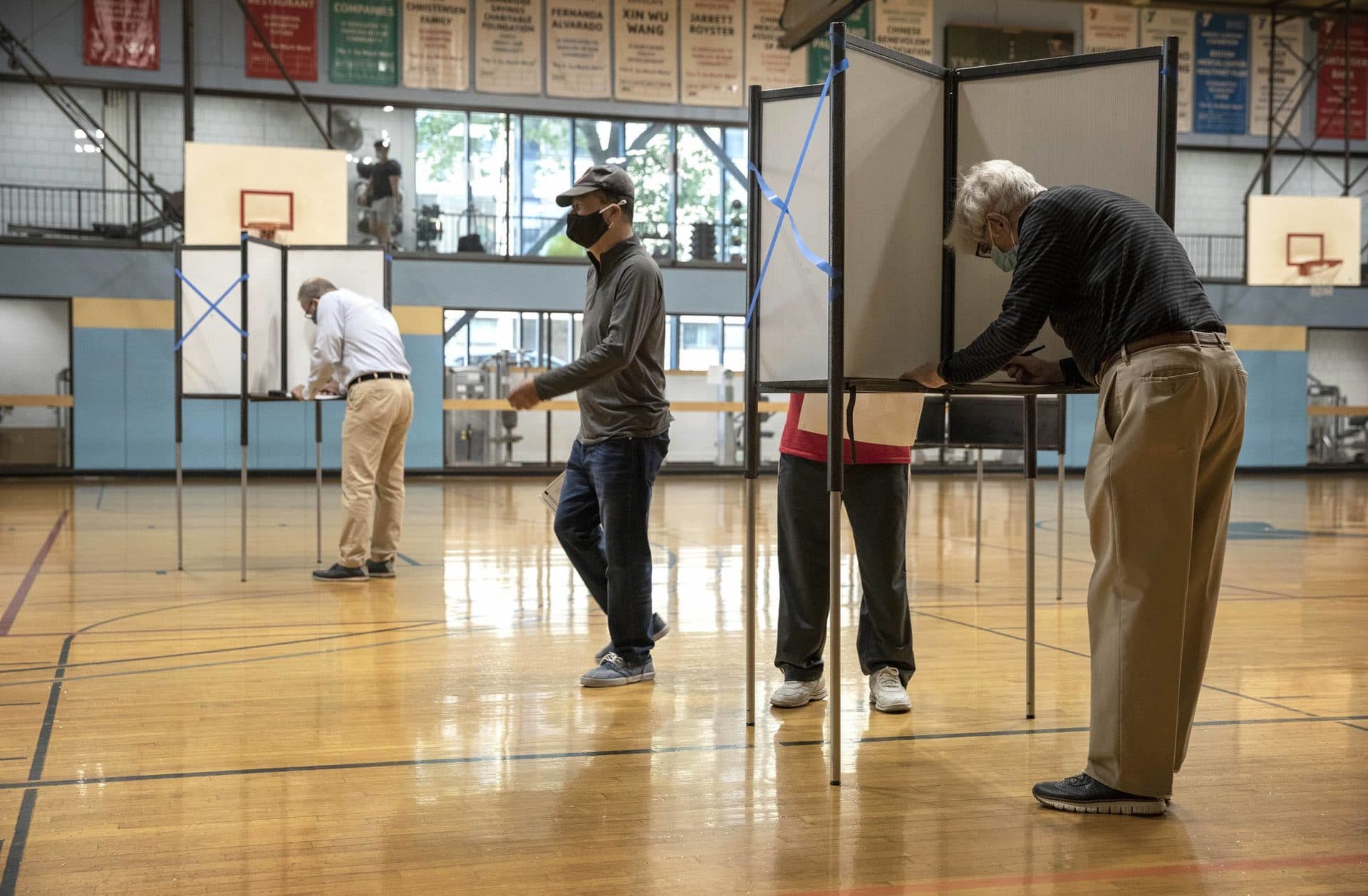
Boston resident Bejeana Breneville said casting her ballot for Campbell was quick and easy, and she was excited about the likelihood Boston will elect a woman mayor for the first time in November.
Breneville added that Campbell's life experience made her a strong candidate.
"She has a super unique personal story that really shows her passion through her work, and she's all about changing the ethics and the barriers that are against Black people, especially in Boston," Breneville said.
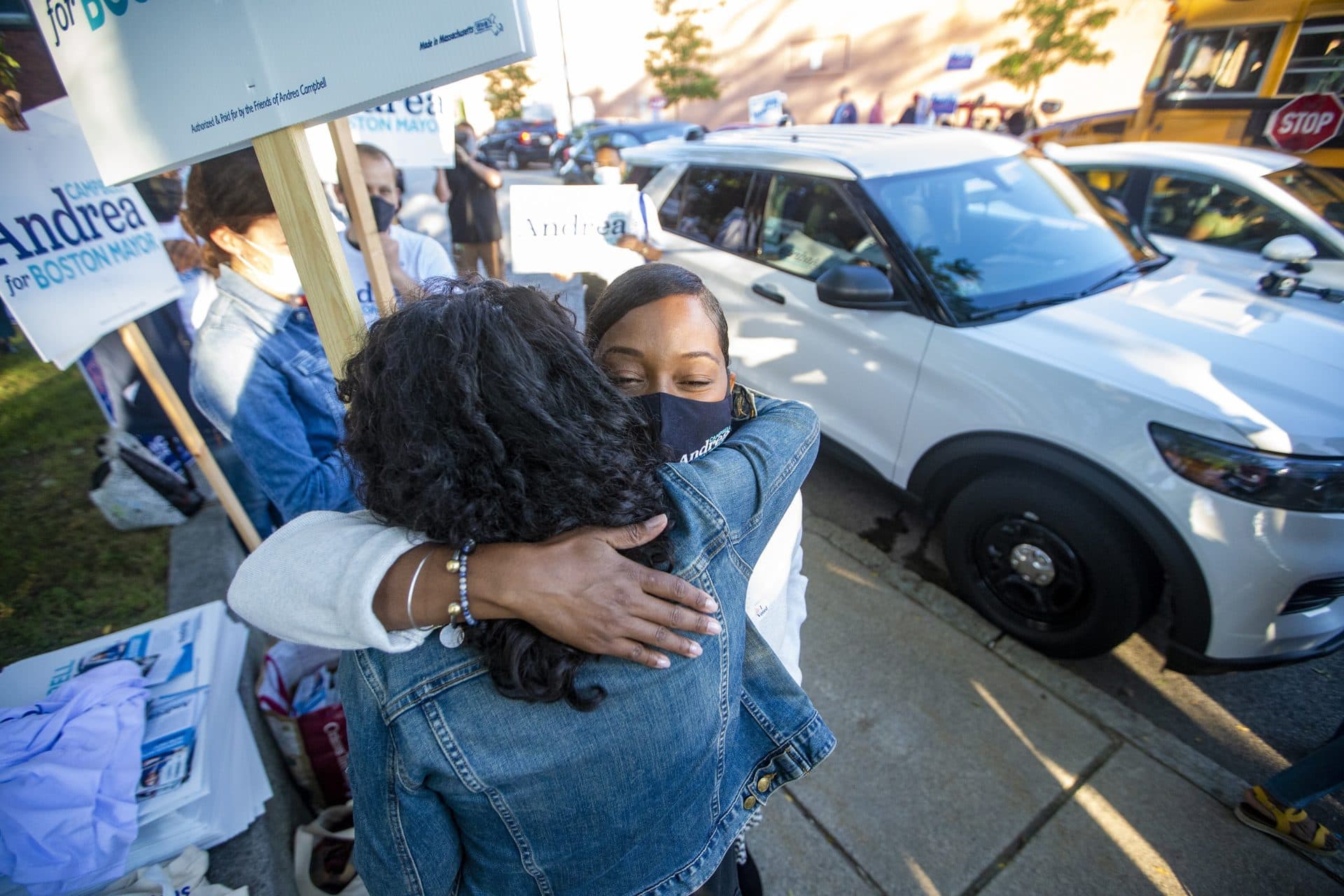
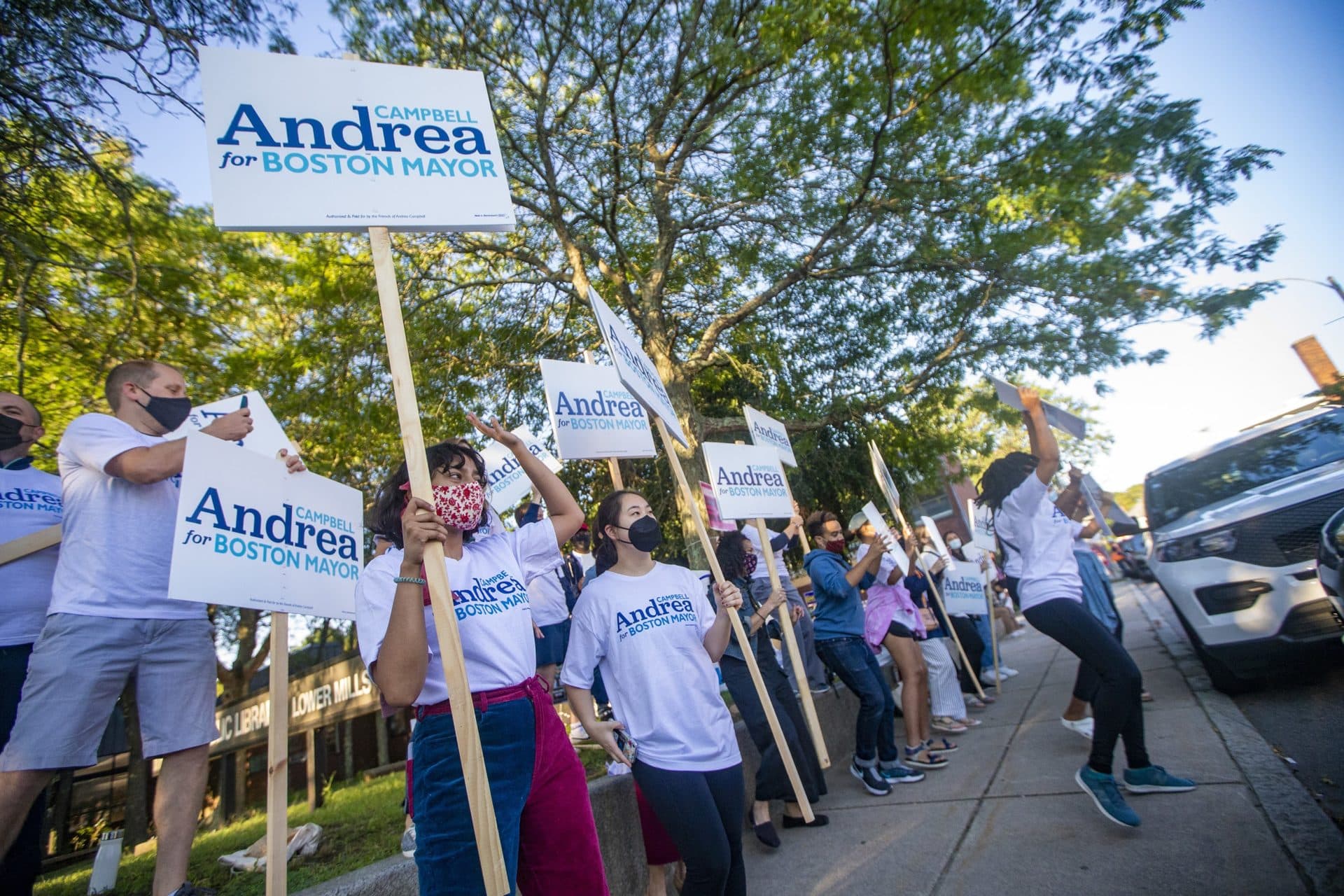
Kasey Conlon, who lives in Brighton, hit the polls before work. She said she's backing Wu.
"She's gotten a lot of endorsements from organizations and other politicians that I respect, such as Elizabeth Warren," Conlon said. "And she's really been the only one that's talked pretty forefront about rent control, so, that got my vote."
With reporting by WBUR's Anthony Brooks, Steve Brown and Quincy Walters
This article was originally published on September 14, 2021.
